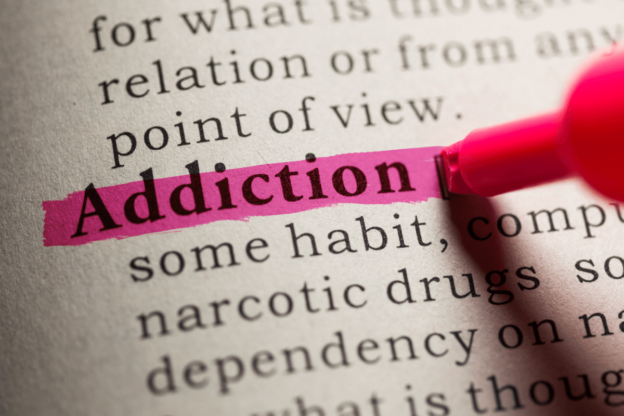We all know the usual suspects when it comes to addiction: drugs and alcohol – the substances that often steal the spotlight. But what if we told you there’s another type of addiction lurking in the shadows, one that can be just as destructive?
It’s called behavioral addiction. It doesn’t involve substances, but it can hijack your life just as effectively. Have you ever met someone who can’t step away from the slot machine, even when down to their last dollar? Or a friend who seems to find comfort only in a never-ending shopping spree? These aren’t just quirks or hobbies – they’re powerful compulsions that can tear apart relationships, careers, and even your sense of self.
What makes these behaviors so captivating, so irresistible? It’s the same brain chemistry that fuels substance abuse. Behavioral addictions trigger a rush of dopamine, the “feel-good” chemical, that reinforces the behavior and makes it incredibly difficult to break free.
But here’s the thing: recovery is possible at a drug rehab in Berkshire, MA. At Berkshire Mountain Health, our approach to rehab in Berkshire recognizes that true healing goes beyond just addressing substance use. We understand that behavioral addictions often go hand in hand with substance abuse, and treating both is crucial for lasting recovery.
What Exactly Are Behavioral Addictions?
Simply put, they’re compulsive patterns of behavior that continue despite the negative consequences.1 These behaviors can take many forms – sex, shopping, internet use, gaming, and even a gambling addiction. They’re not just bad habits but deeply ingrained patterns that disrupt your life, relationships, and overall well-being.
Let’s examine what makes these addictions tick and how they can impact your life. Understanding the problem is the first step toward finding a solution.
Why Do Behavioral Addictions Happen?
Why do people fall prey to behavioral addictions? The answer isn’t always straightforward. These compulsions often stem from a complex web of factors, much like their substance abuse counterparts.
Think of it like this: life throws curveballs, and sometimes, those curveballs leave us reeling. Trauma, chronic stress, and mental health conditions like anxiety or depression – can all create a fertile ground for addiction to take root. Some individuals may even have a genetic predisposition that makes them more susceptible.
In the face of such challenges, it’s natural to seek relief. And that’s where behavioral addictions come in. They offer a temporary escape, a quick fix for emotional pain. The gambler finds solace in the thrill of the game, the shopper in the rush of a new purchase.
But these coping mechanisms are like band-aids on a bullet wound – they may provide temporary relief, but they don’t address the underlying issue. They often exacerbate it, leading to a vicious cycle of addiction.
How Do Behavioral Addictions Develop and Coexist with Drug Addiction?
The link between behavioral addictions and substance use disorders runs deep. They often share common risk factors, such as impulsivity, poor coping skills, and co-occurring mental health disorders.
It’s not uncommon for individuals struggling with substance abuse to also grapple with behavioral addictions like gambling or shopping addiction. This is a co-occurring disorder; understanding this connection is vital for effective treatment.
Think of it as a two-headed problem: both heads must be addressed for true healing. That’s why dual diagnosis treatment, which tackles both substance abuse and mental health conditions, is so crucial. It’s a comprehensive map for recovery, guiding individuals through the complex terrain of their addictions and underlying issues.
Here’s where things get even more complicated: behavioral addictions and substance abuse can fuel each other in a dangerous dance. The gambler may turn to alcohol to numb the pain of their losses, while the alcoholic may seek refuge in the virtual world of gaming. This creates a downward spiral that can be difficult to escape.
Sometimes, these behavioral addictions are like smoke and mirrors, hiding deeper emotional wounds. Instead of facing those challenging feelings head-on, folks might get caught in a cycle of compulsive behavior as a way to avoid the pain.
That’s why places like Berkshire Mountain Health don’t just stop at the surface. We dig deeper, helping people understand the roots of their struggles and find healthier ways to cope.
Getting a handle on the connection between these behavioral addictions and substance abuse is a big deal. It’s like two sides of the same coin. When you tackle both simultaneously, you’ve got a real shot at breaking free and building a life that’s genuinely yours.
Treatment Options for Behavioral Addictions in a Drug Rehab in Berkshire, MA
The journey to recovery from behavioral addictions isn’t a one-size-fits-all path. At a quality treatment facility, it’s a personalized roadmap tailored to your unique needs and challenges.
Therapy: The Cornerstone of Behavioral Addiction Treatment
Therapies like Cognitive Behavioral Therapy (CBT) equip you with the tools to identify and challenge those unhelpful thought patterns that fuel your compulsive behaviors.
You’ll learn to spot those triggers that set you off, find new and healthier ways to deal with stress, and gradually replace those old habits with ones that actually build you up.
Dialectical Behavior Therapy (DBT) is another approach to handling your emotions and staying present in the moment. This can be a game-changer if you’re dealing with intense feelings that often fuel those addictive behaviors.2
And then there’s Acceptance and Commitment Therapy (ACT). It’s like making peace with your thoughts and feelings, not judging them, but still taking action that aligns with what you truly value. It’s a powerful way to loosen the grip of addiction and start living a life that’s meaningful to you.
Addressing the Root of the Problem
But treating behavioral addictions isn’t just about changing your thoughts and actions. It’s also about addressing the underlying causes. If you’re dealing with past trauma, specialized trauma therapy can help you process those experiences and heal old wounds.
If co-occurring mental health disorders like anxiety or depression are part of the picture, medication management may be necessary to restore balance and provide relief.
Building a Strong Foundation for Lasting Change
Building healthy coping skills is another crucial piece of the puzzle. This could involve learning stress reduction techniques like meditation or yoga, discovering new hobbies and interests to replace addictive behaviors, or finding solace in a supportive community of peers who understand what you’re going through.
Staying on Track: Relapse Prevention With a Drug Rehab in Berkshire, MA
And let’s not forget about relapse prevention. Recovering from addiction is a journey, not a destination. Developing strategies for identifying triggers, managing cravings, and staying on track is essential. This might involve ongoing therapy, support groups, or even residential treatment in some cases.
Remember, the path to recovery from behavioral addictions is not a sprint but a marathon. It requires patience, perseverance, and a willingness to confront difficult emotions and challenges. But with the proper support and guidance, you can break free from the cycle of addiction and build a life that’s rich, meaningful, and free from compulsive behaviors.
Your Road to Recovery Starts at a Drug Rehab in Berkshire, MA
At Berkshire Mountain Health, we get it – behavioral addictions are a whole different ballgame. That’s why our rehab in the Berkshires goes beyond just substance abuse; we offer comprehensive treatment for things like gambling and shopping addictions, too.
We create personalized plans for each person, using proven therapies like CBT and DBT and more holistic approaches to help you heal. Our supportive environment is all about lifting you and giving you the tools to build a life that’s free from addiction.
Ready to take the next step? Reach out to Berkshire Mountain Health today and see how we can help you on your road to recovery.
Sources:
[1] https://www.ncbi.nlm.nih.gov/pmc/articles/PMC3164585/
[2] https://www.ncbi.nlm.nih.gov/pmc/articles/PMC2963469/

Alexis earned both a B.S. in Psychology and a B.S. in Family and Child Sciences from Florida State University and an M.A. in Marriage and Family Therapy from the University of San Diego. She holds licenses in Marriage and Family Therapy in Florida, Connecticut, and Massachusetts and is also a member of the American Association for Marriage and Family Therapy (AAMFT).
Alexis works with families, couples, children, and groups and also has a sub-specialty in addiction and recovery. She utilizes an integrated, systemic approach to counseling; empowering people to define what is not working for them in their lives and to discover the possibilities for making life work. In doing this, clients are guided towards identifying their strengths, accessing their resources, tapping into their potential for success, and taking action toward achieving their desired goals.
Alexis also has extensive experience in the administration of behavioral health organizations. She has developed, built, and supervised several facilities encompassing all levels of care while leading them through state licensing and The Joint Commission accreditation process.



